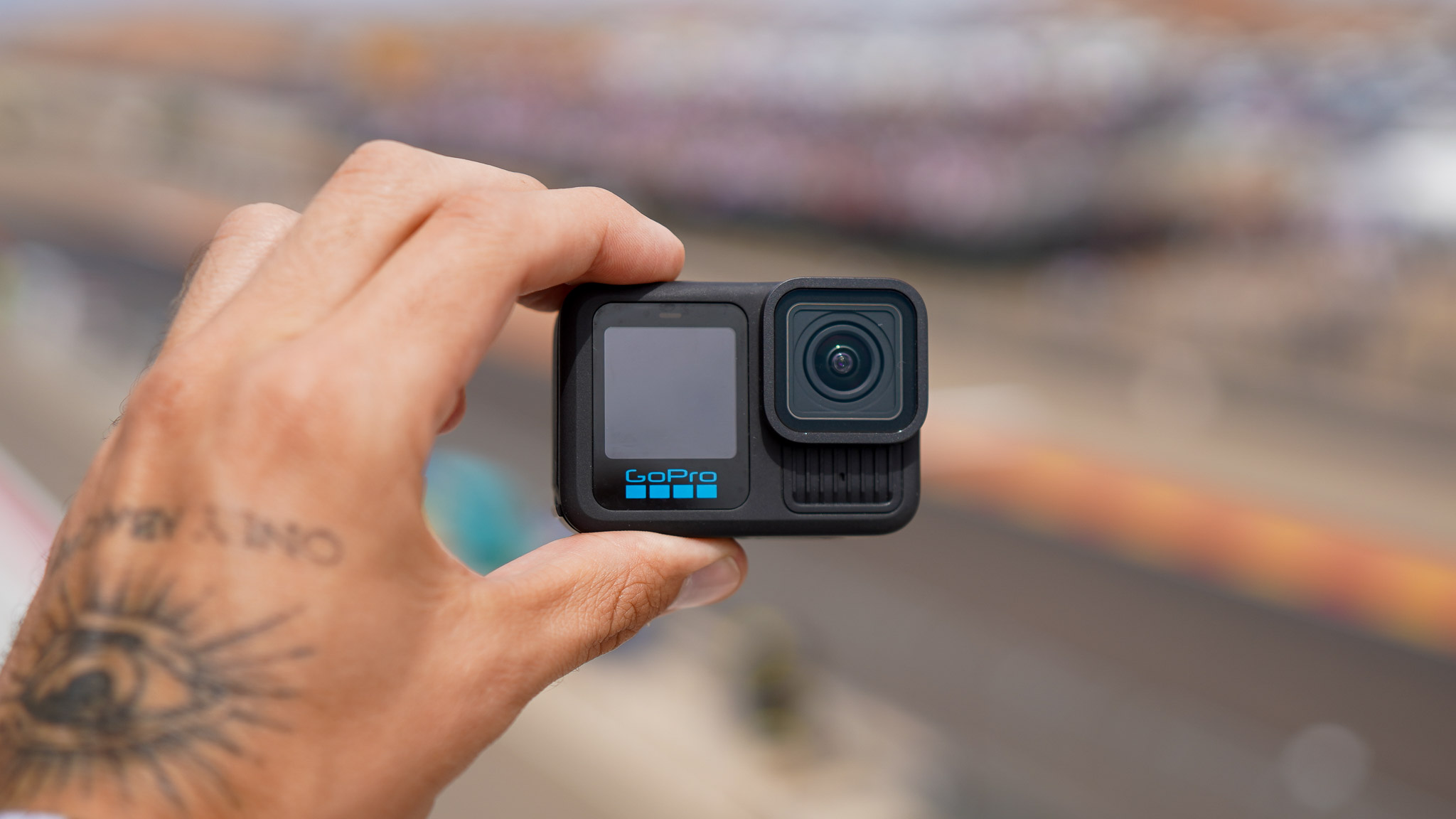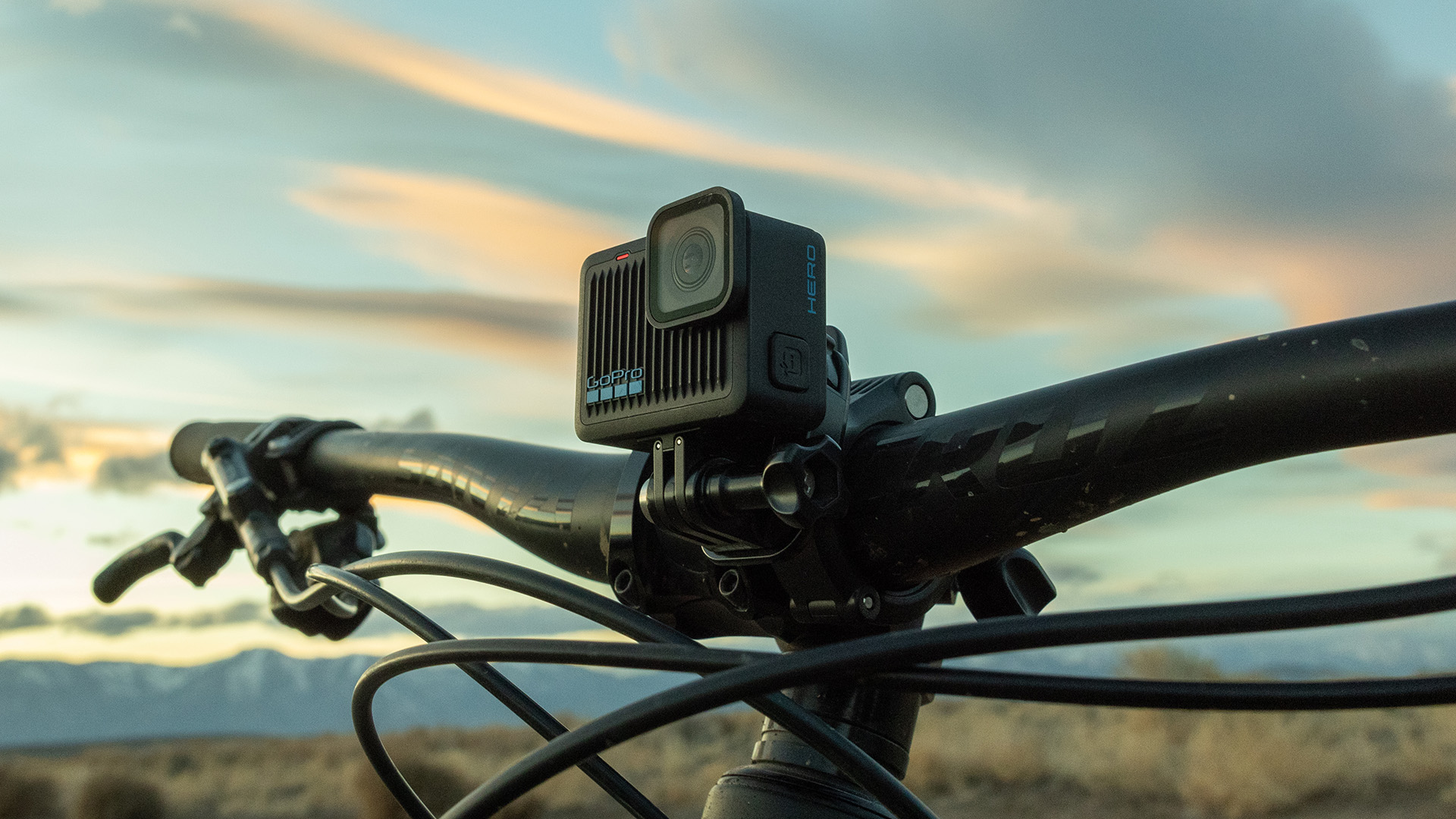GoPro Head of Product Pablo Lema: “It’s easy to make a camera, but it’s hard to make a great GoPro”
I went behind the scenes with Pablo Lema to talk about all things GoPro


Get all the latest news, reviews, deals and buying guides on gorgeous tech, home and active products from the T3 experts
You are now subscribed
Your newsletter sign-up was successful
Even if you aren’t into action cams, you know the brand GoPro. Over the years, the company has built such a strong reputation that people started to use the word GoPro when they were talking about action cameras, the same way they do with Fitbits and fitness trackers.
The latest cohort of the best GoPros includes the flagship GoPro Hero 13 Black and the more compact Hero, offering different models for certain use scenarios. Furthermore, the Hero 13 Black added a host of news lens mode and shooting modes, which expands on the already impressive arsenal of different shooting modes the camera already had.
To get a better view of what the company is trying to achieve with the new cameras, I sat down with Pablo Lema, Head of Product at GoPro, to discuss the company’s latest offerings: the Hero 13 Black and the newly reintroduced Hero.
Our conversation provided a deep dive into the thought process behind these new action cameras and how they fit into the broader GoPro ecosystem. Plus, it was just a fun conversation with someone who knows everything about GoPro’s products and is also a nice person to be around.
Modularity and magnetic mounts: a practical evolution
I began by asking Pablo about the decision to incorporate modularity and magnetic mounts into the Hero 13 Black. According to Pablo, these features weren’t just added for the sake of novelty but stemmed from a genuine need to make GoPro cameras more adaptable.
“Our goal is simple yet complex,” he began. “We want to help people document what they care about in a fast and creative way. For many moments, a phone isn’t the right tool, and that’s where our products come in – what we call versatile or alternative imaging scenarios.”
Pablo elaborated on how the magnetic latch mounting system exemplifies GoPro’s commitment to usability. “When we saw people using it during beta testing, it hit home. The mounting system had to remain robust without adding complexity because these products need to be simple – just charge them, bring the necessary accessories, and go.”
Get all the latest news, reviews, deals and buying guides on gorgeous tech, home and active products from the T3 experts

Hero 13 Black: versatility at its core
The Hero 13 Black, GoPro’s new flagship model, is built around the concept of versatility. It features four interchangeable HB-Series lenses, each designed to offer different creative possibilities while maintaining GoPro’s trademark durability.
“We’ve always been known for our wide-angle, super-immersive images,” Pablo noted. “But our users kept asking for more options, like the ability to shoot in a more traditional, linear format. This led to the introduction of our linear lenses.”
Pablo also touched on the importance of catering to diverse use cases, from macro photography to cinematic production. “People began using GoPros for macro photography, like filming tiny objects up close or capturing detailed cooking shots. The desire to do things like this drove the development of our macro and even anamorphic lenses, which come from our media production side.”
The Hero 13 Black’s design reflects this user-driven approach, combining high-end features like HyperSmooth stabilisation with the flexibility to adapt to different shooting styles. However, Pablo emphasised that the camera remains true to its core mission. “The base product remains the same, but the lenses allow users to vary the type of footage they want to capture.”

Reimagining the Hero: simplicity and accessibility
On the other side of GoPro’s new lineup is the Hero, a camera that takes the simplicity of the original Hero models and refines it for today’s users. Weighing just 86 grams, the Hero is the smallest GoPro ever with a screen, designed to be straightforward and accessible.
“The Hero was born from the idea of making the GoPro experience more accessible,” Pablo explained. “We observed that many users wanted a GoPro to capture perspectives they couldn’t get with their phones, but they didn’t need all the advanced features of our flagship models.”
Despite its simplicity, the Hero retains GoPro’s signature ruggedness and 4K video capability, making it a practical choice for those who want a reliable camera without the complexity of more advanced models. “It’s simple: you press a big red button, and it records video that looks wide and cool, whether it’s mounted on your chin, a bike, or in a corner at an event,” Pablo added.

Yours truly posing with Pablo Lema (right) at the Gran Premio de Aragón
Looking ahead: GoPro’s future focus
Towards the end of our discussion, I asked Pablo about GoPro’s plans for the future, particularly in the realm of 360 cameras. While the Hero 13 Black and Hero are the focus for now, Pablo hinted that the company is still committed to developing its 360 camera technology.
“We’re still very committed to 360 cameras,” Pablo said. “The Max, which came out in 2019, remains competitive in terms of image quality. We know we need to make some software updates, and we’re working on that. Our goal with the next iteration is to make a significant leap forward.”
Pablo also addressed the pressure to constantly innovate in an industry that’s always pushing for higher resolution and more features. “We’re careful about setting a high bar in image quality, not just resolution. It’s easy to make an 8K device, but the challenge is to maintain image quality without overloading the processor. Most people aren’t clamouring for 8K; they want flexibility in framing and cropping.”
As our conversation concluded, it became clear that GoPro’s latest offerings are the result of a careful balance between innovation and user feedback. Through the modularity of the Hero 13 Black and the simplicity of the Hero, GoPro continues to focus on creating tools that enable users to capture the world around them in new and exciting ways while staying true to the core values that have defined the brand from the beginning.
To find out more about the new action cameras, head over to GoPro. Haven't got a GoPro yet? Check out T3's best GoPro deals roundup.

Matt Kollat is a journalist and content creator for T3.com and T3 Magazine, where he works as Active Editor. His areas of expertise include wearables, drones, action cameras, fitness equipment, nutrition and outdoor gear. He joined T3 in 2019.
His work has also appeared on TechRadar and Fit&Well, and he has collaborated with creators such as Garage Gym Reviews. Matt has served as a judge for multiple industry awards, including the ESSNAwards. When he isn’t running, cycling or testing new kit, he’s usually roaming the countryside with a camera or experimenting with new audio and video gear.